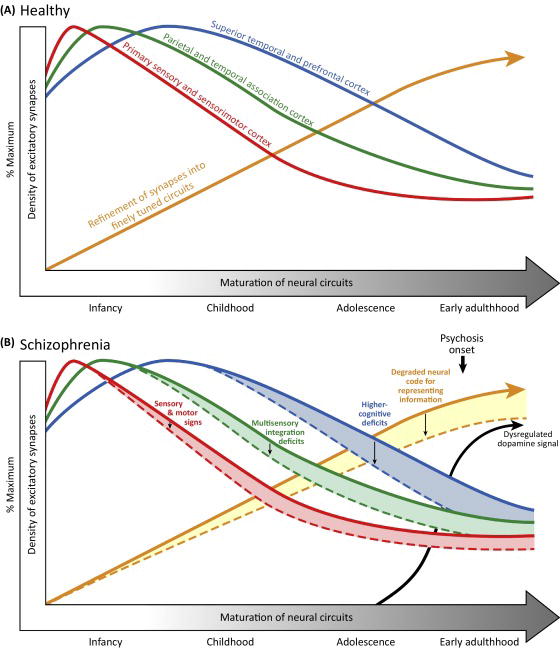Figure 2. Synaptic Plasticity and Brain Maturation in the Healthy Brain and in Schizophrenia.

(A) Developmental trajectories of excitatory synapses in representative cortical regions in the healthy brain. Within each region, synapses are initially overproduced and undergo a period of net synaptic pruning in which weak synapses are eliminated and adaptive synapses are strengthened. These synaptic refinements are thought to contribute to the maturation of finely tuned and functionally organized neural circuits mediating sensory, motor, and cognitive functions. (B) Hypothesized consequences of impaired synaptic plasticity across development in schizophrenia. Impaired synaptic plasticity in schizophrenia is predicted to lead to increased synaptic pruning and suboptimal fine-tuning of neural circuits. Regional differences in the trajectories of synaptic refinement and circuit maturation predict the timing of the emergence of sensory, motor, and higher cognitive signs in schizophrenia, with the magnitude of the impairments being positively associated with the age of their appearance. Dysregulated dopamine signaling emerges in adolescence as a downstream consequence of impaired cortical synaptic plasticity, and ultimately interacts with suboptimal neural tuning to yield psychotic symptoms in late adolescence or early adulthood.
